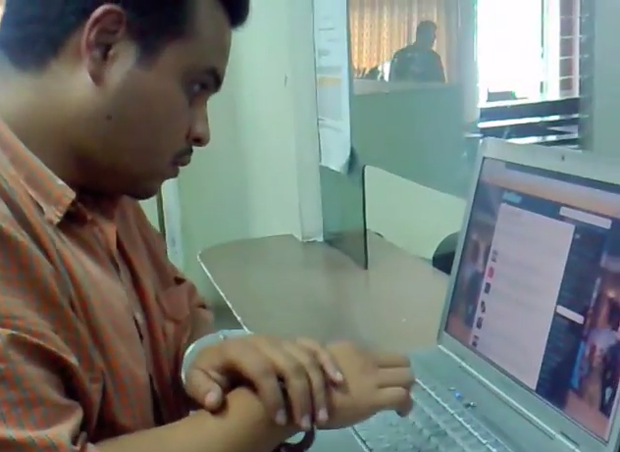17 Jun 2015 | Events, Magazine, mobile
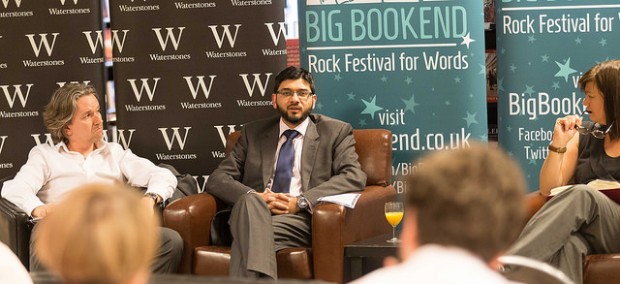
Index hosted a debate at the Leeds Big Bookend festival (Photo: Steve Evans)
Does freedom of religion and freedom of speech come as a package or can you pick and choose? Do those suggesting freedom of expression should be “civilised” and that we should be wary of causing offence to people’s religious sensibilities have a point? Or are there too many people who are easily offended? Are our attempts to be polite actually significant obstructions to the discussion of important issues? These were just some of the questions tackled at “The new civility: are religious freedom and freedom of speech intertwined?” the 10 June event organised as part of the Leeds Big Bookend festival.
Chaired by Index on Censorship magazine editor Rachael Jolley, the panel was made up of assistant features editor at the Yorkshire Evening post Chris Bond, local imam Qari Muhammad Asim MBE and author Anthony Clavane.
In the past, people who have argued for greater religious freedom have also fought for greater freedom of speech, but the debate looked to address the idea that this connection has become somewhat lost. It sprang from the Spring 2015 issue of Index on Censorship, where writers from across the world, including Elif Safak and Ariel Dorfman, provided thoughtful analysis of the aftermath of Charlie Hebdo killings.
The debate threw up some fascinating themes and the panel were observed and questioned by an enthusiastic audience at Waterstones, Leeds. A full recording of the event in the form of a podcast can be listened to below.
The new civility: are religious freedom and freedom of speech intertwined? by Tttdebates on Mixcloud
17 Jun 2015 | Azerbaijan News, mobile, News and features
Governments don’t really like coming across as authoritarian. They may do very authoritarian things, like lock up journalists and activists and human rights lawyers and pro democracy campaigners, but they’d rather these people didn’t talk about it. They like to present themselves as nice and human rights-respecting; like free speech and rule of law is something their countries have plenty of. That’s why they’re so keen to stress that when they do lock up journalists and activists and human rights lawyers and pro-democracy campaigners, it’s not because they’re journalists and activists and human rights lawyers and pro-democracy campaigners. No, no: they’re criminals you see, who, by some strange coincidence, all just happen to be journalists and activists and human rights lawyers and pro-democracy campaigners. Just look at the definitely-not-free-speech-related charges they face.
1) Azerbaijan: “incitement to suicide”

Khadija Ismayilova is one of the government critics jailed ahead of the European Games.
Azerbaijani investigative journalist Khadija Ismayilova was arrested in December for inciting suicide in a former colleague — who has since told media he was pressured by authorities into making the accusation. She is now awaiting trial for “tax evasion” and “abuse of power” among other things. These new charges have, incidentally, also been slapped on a number of other Azerbaijani human rights activists in recent months.
2) Belarus: participation in “mass disturbance”
Belorussian journalist Irina Khalip was in 2011 given a two-year suspended sentence for participating in “mass disturbance” in the aftermath of disputed presidential elections that saw Alexander Lukashenko win a fourth term in office.
3) China: “inciting subversion of state power”
Chinese dissident Zhu Yufu in 2012 faced charges of “inciting subversion of state power” over his poem “It’s time” which urged people to defend their freedoms.
4) Angola: “malicious prosecution”
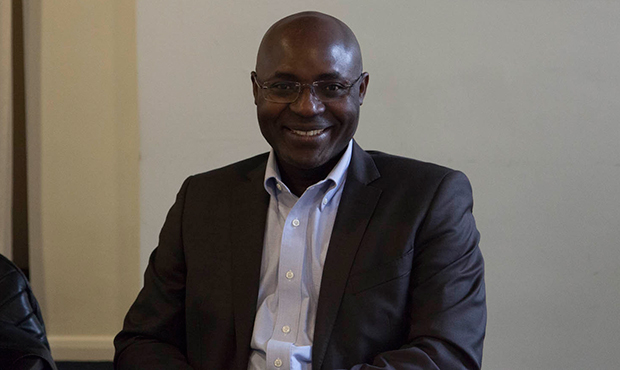
Journalist and human rights activist Rafael Marques de Morais (Photo: Sean Gallagher/Index on Censorship)
Rafael Marques de Morais, an Angolan investigative journalist and campaigner, has for months been locked in a legal battle with a group of generals who he holds the generals morally responsible for human rights abuses he uncovered within the country’s diamond trade. For this they filed a series of libel suits against him. In May, it looked like the parties had come to an agreement whereby the charges would be dismissed, only for the case against Marques to unexpectedly continue — with charges including “malicious prosecution”.
5) Kuwait: “insulting the prince and his powers”
Kuwaiti blogger Lawrence al-Rashidi was in 2012 sentenced to ten years in prison and fined for “insulting the prince and his powers” in poems posted to YouTube. The year before he had been accused of “spreading false news and rumours about the situation in the country” and “calling on tribes to confront the ruling regime, and bring down its transgressions”.
6) Bahrain: “misusing social media

Nabeel Rajab during a protest in London in September (Photo: Milana Knezevic)
In January nine people in Bahrain were arrested for “misusing social media”, a charge punishable by a fine or up to two years in prison. This comes in addition to the imprisonment of Nabeel Rajab, one of country’s leading human rights defenders, in connection to a tweet.
7) Saudi Arabia: “calling upon society to disobey by describing society as masculine” and “using sarcasm while mentioning religious texts and religious scholars”
In late 2014, Saudi women’s rights activist Souad Al-Shammari was arrested during an interrogation over some of her tweets, on charges including “calling upon society to disobey by describing society as masculine” and “using sarcasm while mentioning religious texts and religious scholars”.
8) Guatemala: causing “financial panic”
Jean Anleau was arrested in 2009 for causing “financial panic” by tweeting that Guatemalans should fight corruption by withdrawing their money from banks.
9) Swaziland: “scandalising the judiciary”
Swazi Human rights lawyer Thulani Maseko and journalist and editor Bheki Makhubu in 2014 faced charges of “scandalising the judiciary”. This was based on two articles by Maseko and Makhubu criticising corruption and the lack of impartiality in the country’s judicial system.
10) Uzbekistan: “damaging the country’s image”
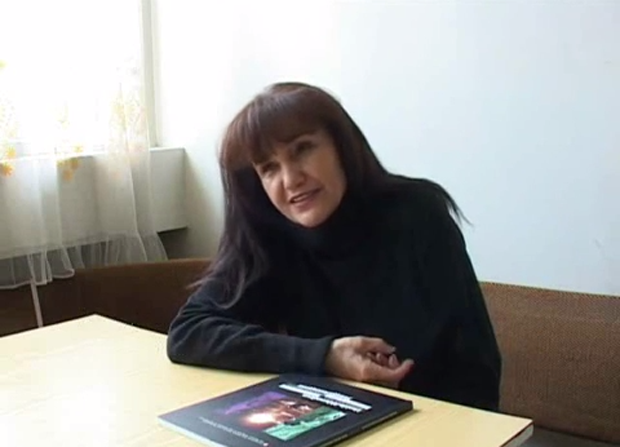
Umida Akhmedova (Image: Uznewsnet/YouTube)
Uzbek photographer Umida Akhmedova, whose work has been published in The New York Times and Wall Street Journal, was in 2009 charged with “damaging the country’s image” over photographs depicting life in rural Uzbekistan.
11) Sudan: “waging war against the state”
Al-Haj Ali Warrag, a leading Sudanese journalist and opposition party member, was in 2010 charged with “waging war against the state”. This came after an opinion piece where he advocated an election boycott.
12) Hong Kong: “nuisance crimes committed in a public place”
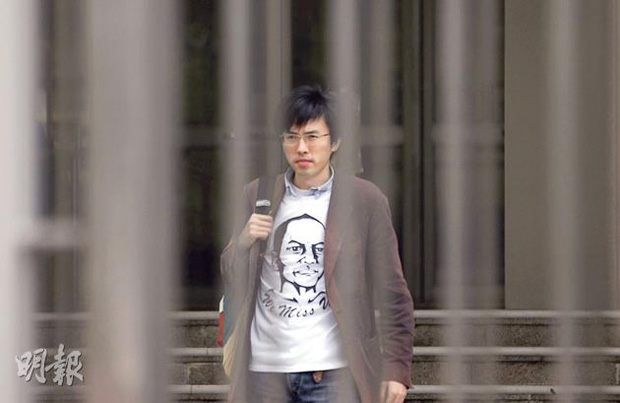
Avery Ng wearing the t-shirt he threw at Hu Jintao. Image from his Facebook page.
Avery Ng, an activist from Hong Kong, was in 2012 charged “with nuisance crimes committed in a public place” after throwing a t-shirt featuring a drawing of the late Chinese dissident Li Wangyang at former Chinese president Hu Jintao during an official visit.
13) Morocco: compromising “the security and integrity of the nation and citizens”
Rachid Nini, a Moroccan newspaper editor, was in 2011 sentenced to a year in prison and a fine for compromising “the security and integrity of the nation and citizens”. A number of his editorials had attempted to expose corruption in the Moroccan government.
This article was originally posted on 17 June 2015 at indexoncensorship.org
4 Jun 2015 | Campaigns, Counter Terrorism, mobile, Statements
Index on Censorship considers Tony Blair’s proposals on hate speech to be dangerous and divisive. Blair, who is to be appointed chair of the European Council on Tolerance and Reconciliation (ECTR) has defended plans to lower the the barriers on what constitutes incitement to violence and make Holocaust denial illegal.
“These suggestions — far from protecting people — are likely to have the opposite effect, driving extremist views underground where they can fester and grow,” said Jodie Ginsberg, CEO of Index on Censorship. “Instead, we should be protecting free expression, including speech that may be considered offensive or hateful, in order to expose and challenge those views.”
Individuals should always be protected from incitement to violence and that protection already exists in law, as do stringent laws on hate speech. Further legislation is not needed.
28 May 2015 | News and features, United Kingdom
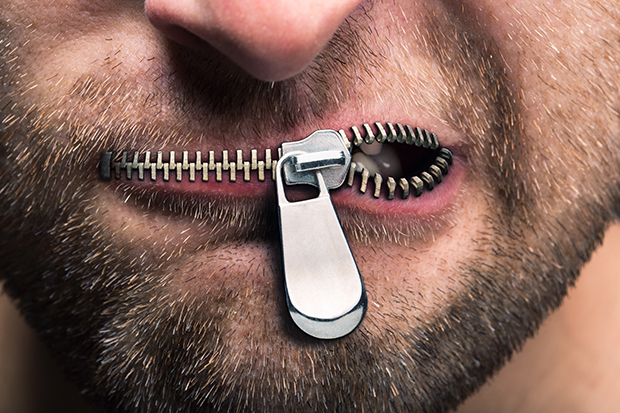
(Photo illustration: Shutterstock)
It’s hard not to feel sorry for Abu Haleema. The poor man can’t catch a break. All he wants to do is establish a global caliphate under the harshest possible interpretation of sharia — a caliphate in which, he hopes, he will play a significant role — and yet he is thwarted at every turn.
First the authorities stop him from travelling to Syria to join the Islamic State. And then, to add insult to injury, they take away his internet, like he’s a naughty teenager. It’s a hard knock life for Abu.
And it’s about to get even harder. In the Queen’s Speech, the government announced a new counter-extremism bill which, will essentially make the existences of Abu Haleema and people like him illegal, without actually making them illegal.
How does that work? To quote the BBC: “The legislation will also propose the introduction of banning orders for extremist organisations who use hate speech in public places, but whose activities fall short of proscription.”
This, in essence, is a thought ASBO, a convenient way of stamping out “extremism” without making any serious attempt to test that behaviour against any kind of proper harm principle.
Whether we like it or not, we do have laws on hate speech and incitement to violence in the United Kingdom. We also have the powers to proscribe terrorist organisations.
But these powers are apparently not enough: and so we must create semi-legal sub-strata of behaviour where people can be censored on the basis of us not liking what they say very much.
This is not some plea for accommodation of the views of Abu Haleema and his friends. Let us be very clear here: these are views which are entirely antithetical to the secular liberal democracy we aspire to be.
But that fact is exactly the test of a secular liberal democracy: if we are to imagine free speech as a defining value of democracy (as David Cameron has said he does) then we cannot just choose which free speech we will defend and which we will not (as David Cameron has said he wants to). As commentator Jamie Bartlett has pointed out, free speech is not something that one pledges allegiance to in the abstract while stifling in the practice.
Predictably, we now turn to the life and times of George Orwell for a lesson from history.
In early 1945, a small group of London anarchists found themselves facing prosecution for undermining the war effort — specifically the charge of “causing disaffection among the troops”. Their crime was to criticise basic training, and to suggest that Belgian resistance movements should not hand over weapons to their Allied liberators, but instead retain their arms and set about building workers’ militias which would form a revolutionary force in post-Nazi Europe.
For this, several of the group were jailed, the British authorities of the time not noticing the irony of fighting for freedom in Europe while jailing dissidents at home.
The failure of the state — and the civil liberties movement — to stand for the right to free speech led to the formation of the Freedom Defence Committee.
Most of the supporters of the Freedom Defence Committee, including Orwell, would have had some sympathy with the anarchist position (Orwell had hoped, in the early days of the war, that the training and arming of the Home Guard would lead to a socialist revolution after the Nazis had been defeated. Apart from that, at least one of the accused, Vernon Richards, was a friend of Orwell’s).
But Orwell and his comrades in the Freedom Defence Committee were alert to the fact that one cannot simply defend the freedom of one’s friends. One also had to stand for the rights of communists and even fascists to hold their views. (Before any reader attempts to refer me to Orwell’s supposedly infamous “list” of communists and fellow travellers, supplied to his friend Celia Kirwan at the government’s Information Research Department, let me point out that it was a list compiled as a favour for a friend, not a blacklist: no one on that list was ever arrested, and they pursued their careers and lives unhindered). This led to the FDC taking the position that those with unpopular views – even those who had been (and still were) on the other side in the war, should be given the same justice as everyone else – demanding, for example, proper rights in cases of dismissal from employment when such a concept barely existed for anyone.
Fascists, communists and Islamists aside, there is probably not a single political grouping in Britain today that does not lay some claim to Orwell’s legacy. But as with free speech arguments, all tend to support the side that supports their side: libertarians cling to the anti-surveillance overtones in his work, while ignoring the long-held demands for state intervention on some issues. Conservatives admire the anti-communism, while ignoring the horror at capitalism, tradition, and the class system. Socialists pretend that Nineteen Eighty-Four and Animal Farm were anything else apart from scathing attacks on left utopianism.
Orwell was a far from perfect figure, but he did get a lot of things right — the fundamental one being the consistent application of principles on issues of liberty.
It is fashionable to invoke Big Brother whenever governments introduce new surveillance measures, or suggest censorship of extremist views. It is also, generally, silly and hyperbolic. But when faced with an enemy entirely at odds with democracy, as we are with Islamist extremism, it’s worth noting that, as did Orwell and his comrades, it is possible to attack the ideology while standing firm on freedom.
An earlier version of this article stated that a group of London anarchists faced prosecution for suggesting the Belgian resistance movements should not hand over weapons to their German liberators. This has been corrected.
This column was posted on 28 May 2015 at indexoncensorship.org





